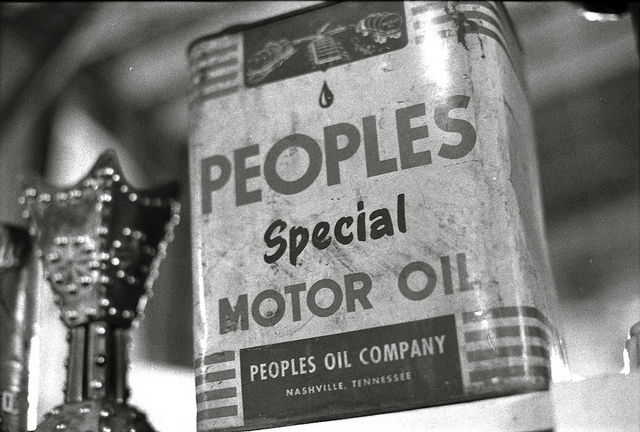Choosing the Right Motor Oil
4th Mar 2016

For automotive maintenance, few things hold the same level of importance as changing the oil. Whether you own a car, truck or sports utility vehicle (SUV), oil plays an essential role in your engine's health. It's responsible for lubricating the engine's components, allowing them to glide more smoothly and with less restriction; it wicks heat away from the engine to prevent overheating; and oil protects against the accumulation of carbon and varnishes within the engine.
But if you've ever shopped for motor oil before, you may have noticed just how many different varieties there are available. There's no such thing as a "one-size-fits-all" oil, meaning you'll have to pay attention to the details when choosing oil for your vehicle.
Single-Viscosity vs Multi-Viscosity
Although there are dozens of different varieties of motor oil, most can be broken down into one of two different categories: single-viscosity and multi-viscosity. The vast majority of modern-day vehicles use multi-viscosity motor oil, such as 10W-40. In this type of oil, the "10" refers to the oil's ability to flow at low temperature, and the "40" refers to its ability to flow at high temperature. Long story short, oil with lower numbers is thinner and able to flow more easily.
Synthetic Oils
Synthetic blends have become increasingly popular in recent years. Featuring special additives that are intended to extend its lifespan and/or performance, they are often pitched by auto shops. Unlike its counterpart, conventional oil, synthetic and synthetic blends are created using artificial chemical compounds. Whether or not there's any real benefit to using synthetic oil is up for date, but the general consensus is that it will last for a longer period of time when compared to conventional oil.
Refer to Your Vehicle's Owner Manual
Of course, it's always a good idea to check the owner's manual of your vehicle to determine which type of oil it is best suited for. Some make and model vehicles are designed to use a specific type of oil. Opting to use an oil variety that is not compatible with your vehicle could lead to increased wear and tear of the engine. So before you purchase new oil for your vehicle, check the owner's manual for recommendations.
How Often do I Need to Change the Oil?
This is a question that remains up for debate. Some oil-changing shops will place stickers on customers' cars, indicating that they'll need another oil change in 3,000-4,000 miles. However, these stickers are rarely accurate, and in most cases you can run your vehicle for at least several thousand additional miles before having to change the oil.

